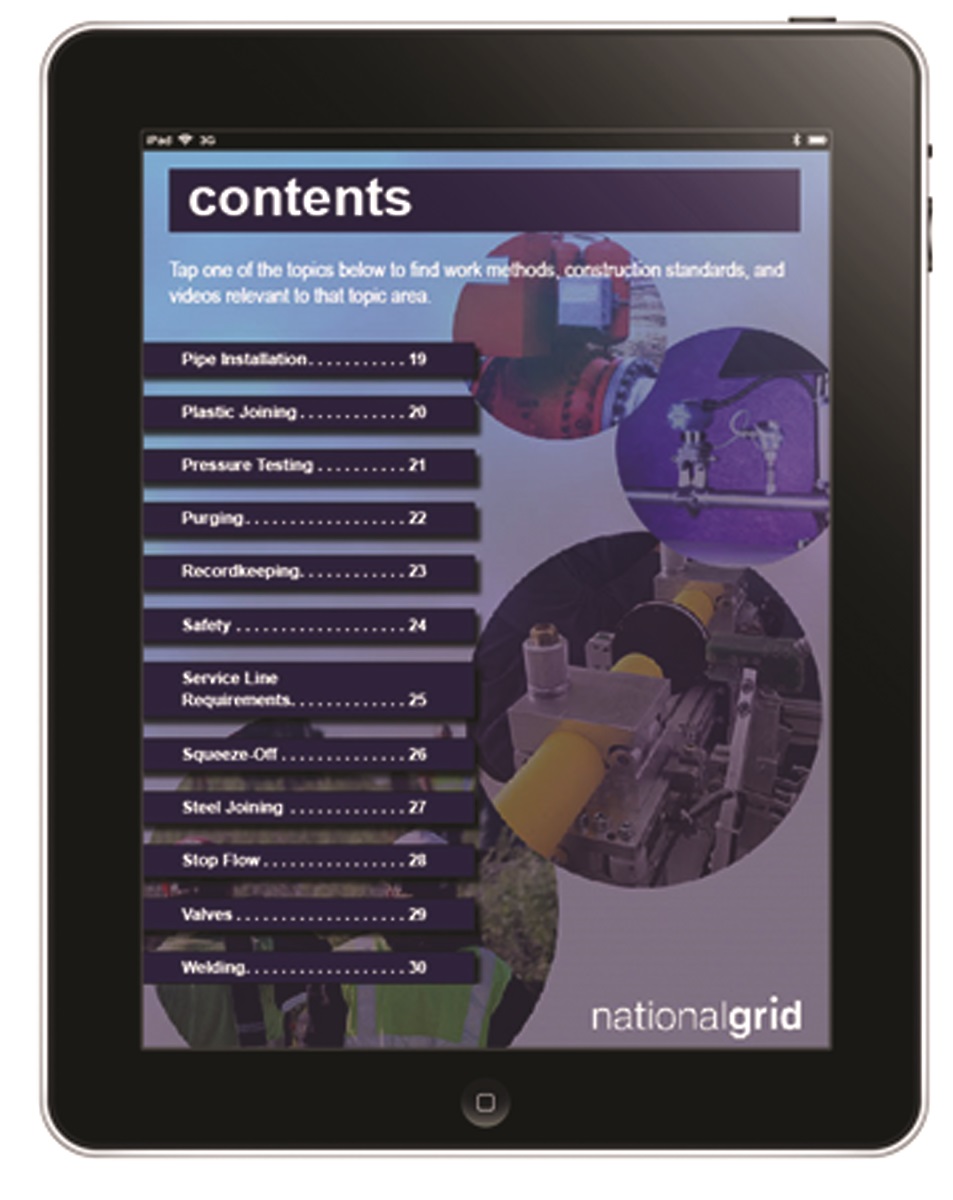September 2015, Vol. 242, No. 9
Features
Ensuring Quality Contractor Workforce Through Standardized Training

At the first-of-its-kind Distribution Contractors Association/American Gas Association (DCA/AGA) Utility Contractor Workshop in Chicago, presenters and attendees were single-minded in their focus on one goal: to ensure the growing contractor workforce has the requisite knowledge to safely build the nation’s gas distribution infrastructure while expanding the contractor workforce to meet the needs of utility main replacement and expansion programs.
With plans at many utilities to accelerate programs aimed at replacing aging pipeline systems, meeting this goal is more important than ever.
Going forward, operators will need to ensure that the increasing number of contractors who work for them are thoroughly trained, as the number of pipeline infrastructure replacement projects continues to grow over the next two decades. Utilities are looking to replace leak-prone pipe and regulators would like to see this happen at a quicker pace – but both have safety as a top priority and understand that training is essential.
Regulators across the country, in fact, are paying particular attention to the proficiency and competency of the industry’s contractor-supported workforce and now have higher expectations for operators when it comes to workforce qualifications.
Bob Wilson, director, pipeline safety compliance strategy at National Grid, said there has been a paradigm shift of behavior in the industry – from reacting to regulator concerns to proactively training crews in fundamental construction practices and procedures. More and more seasoned workers are retiring, too, adding even greater urgency to the need to transfer knowledge to a new workforce.
“It’s a huge challenge for the industry,” Wilson said. “National Grid [the largest distributor of natural gas in the Northeast] is one of the largest players in the U.S. and it’s an enormous challenge for us, especially when you consider the number of people we’ll be looking to replace and the assets we’re looking to enhance.”
Because the Northeast states have older pipeline systems than the national average, there is a pressing need in that region for utilities to replace older components. For its part, National Grid, with a distribution system in Massachusetts alone that comprises over 11,000 miles of main, plans to replace over 3,600 miles of pipe in the next 20 years.
According to Wilson, regulators in the states in which National Grid operates, while pleased to hear about the utility’s infrastructure replacement plans, have expressed concern about ensuring that qualified people would be performing the work, knowing that it takes time to properly train new employees.
Regional Collaborative
Recognizing the expanding need to ensure the qualifications of an emerging workforce, National Grid leveraged its long-term relationship with Gas Technology Institute (GTI) – a research, development, and training organization serving natural gas industry stakeholders – to take the first steps in developing a standardized training program for contractors in the Northeast.
“We were looking to develop a consistent set of modules covering basic construction principles that we could provide to our contractor workforce,” said Wilson. “GTI is highly skilled and very knowledgeable. I consider them to be the go-to technical resource for the industry.”
The background knowledge offered in GTI’s training modules supports the Northeast Gas Association’s (NGA) operator qualification (OQ) program, which is used by the majority of operators in the Northeast, so it made sense for the organizations to work together in developing a contractor version of GTI’s course content.
A series of workshops were held to review the core GTI material and to develop a course that would cover basic construction principles applicable to contractors serving operators in the Northeast, and specific enough to address National Grid’s construction practices.
Feeney Brothers Excavation, LLC, one of National Grid’s contractors from Boston, played a key role in defining, creating and refining the material, as well as providing critical support in development of a tablet application.
Throughout the course development process, the group kept four key objectives in mind:
• Course content should be a standardized, consistent presentation of basic construction skills for contractors.
• When delivered, the approach should also be consistent, always balancing the learning experience by employing both hands-on and classroom training.
• Students should have opportunities to learn about operator-specific procedures which contain company-specific requirements in addition to the basic skills content.
• A quality assurance (QA)/quality control (QC) component should be in place to ensure the program is always delivered in the manner in which it was designed.
Following the workshops, the group launched a pilot test of the course with participants from Feeney Brothers.
Pilot Course
The 40-hour course that came out of the development process comprised 26 modules covering construction, corrosion control, pipeline installation, pipe joining, pipeline operations and maintenance and emergency preparedness.
Developed by a team of industry veterans and reviewed by subject matter experts, the course content is based on the typical work a contractor performs. It is specific enough to ensure safety, quality and efficiency, and covers the fundamental steps of each process including relevant OQ-covered tasks. PowerPoint presentations and videos are combined with hands-on activities and supplemented with knowledge assessments.
An innovative feature of the course has proved to be the tablet-learning tool, which is designed to include National Grid’s work methods, specifications and procedures, as well as instructional videos of essential construction procedures such as the fusion of polyethylene pipe.
Wilson said the tablet tool is a key component of the program.
“Because of the nature of differences in infrastructure, procedures may be different from operator to operator,” he said. “Yet, when contractors are in the field, they must follow company-specific operating procedures or risk regulatory violation. The tablet-learning tool was developed to help students understand where and when National Grid’s procedures are more specific than the core principles and to serve as a quick reference for crews in the field.”
Vanessa O’Neil, training program manager at GTI, led development of the training modules, guided the design of the learning experience and served as an independent observer during the pilot. She said the tablet proved to be an invaluable tool for integrating company-specific procedures into the classroom sessions.
“Instructors used two screens, one for the training module and the other for the tablet,” she said. “That way, students can practice the procedure following National Grid guidelines.”
Because crews are often working in areas without cellular connectivity, the tablet offers critical portability and flexibility. The National Grid application is stored locally on the tablet, providing workers immediate, on-the-spot access to procedures and work methods.
Feeney Brothers, a utility contractor that has worked with National Grid on many projects, agreed to lead the pilot classes during the first week of April 2014. After completing a “train-the-trainers” program, designed to ensure consistency in program delivery, knowledge, intended use of the program and integration with the field tablet, GTI certified the trainers. Ready-to-use training materials and a leader’s guide with talking points and step-by-step guidelines for activities and discussions were also provided.
Following this preparation, several full-time Feeney Brothers instructors led classes at the company’s training center in Dorchester, MA. About 35 students, mostly new hires, attended the pilot sessions.
“Our goal was to create a dynamic learning environment,” Wilson said. “Students were continually engaged, moving throughout the facility from hands-on demonstrations of procedures to classroom presentations. It was a good mix of learning activities.”
Regulators from the state also sat in for the pilot sessions.
NGA’s vision is for all of its member companies to have access to the GTI training program to help prepare contractor employees.
“Ideally, operators and contractors will conduct classroom training during the winter months when crews are hiring and training and getting everyone ready for spring,” O’Neil said. “In addition to managing their OQ Program, NGA’s new role will be to visit the contractor-training sessions to ensure they’re maintaining high standards – that they’re following the agenda, delivering the content as intended, maintaining a good balance of hands-on and classroom experiences, and engaging students.”
After The Pilot
After a series of workshops held throughout the Northeast in 2014, the new contractor-training program was unveiled to a group of National Grid contractors in December.
“We described what worked and the recommendations made by the regulators who had attended the sessions,” Wilson said. “We also put everyone on notice that we were moving toward adopting the program as a standard way of ensuring that National Grid has the highest quality workforce in place.”
Since completion of the workshops, Wilson said 30% of its contractors signed up for the program and now have access to the modules and the tablet device.
Moving forward, GTI will review and update the field skills training program each year, based on code rule change, technology advances, or a change in industry standard construction practices. The learning tablet will be updated more frequently, based on changes to National Grid’s operating procedures.
Since the initial pilot, Wilson and the GTI staff have been on the road, spreading the word about the contractor program at the NGA Contractor Workshop, as well as the DCA/AGA conference.
Most recently, at the NGA Spring Operations Conference in Stamford, CT, Wilson told a packed room about the successful partnership of NGA, National Grid and GTI. Judging by the enthusiastic response from the audience, contractors across the country will soon be establishing content-licensing agreements with GTI for the 26 standardized contractor modules.
GTI Training Programs
Recently, GTI revamped its 77-module Natural Gas Field Skills Training Program, a prepackaged program available for licensing to utilities to prepare internal workforces for safety and regulatory requirements. The 26-module contractor-version of the program, which was used in the April 2014 pilot, is also available for licensing.
“Our plan is to work closely with utilities to help them provide their contractors with consistent, formalized procedures that meet their specific objectives,” O’Neil said.
For further information, visit gastechnology.org/training or contact Vanessa O’Neil at (847) 768-0560, vanessa.oneil@gastechnology.org.
GTI as an Industry Resource
GTI has served as a resource for the natural gas industry for decades, having trained more than 65,000 participants since opening its doors in 1941. Since 1996, GTI’s Registered Gas Distribution Professional (RGDP) certification program has provided a thorough grounding in the theory and practice of gas distribution engineering, operations and auxiliary systems to hundreds of energy professionals.
Upcoming courses for transmission and distribution companies held at classrooms in downtown Chicago include:
• Distribution Integrity Management Program, Sept. 21-25
• Transmission Pipeline Design, Construction Practices, Sept. 28-Oct. 2
• Pipeline Safety Regulatory Compliance, Oct. 26-30

Designed to integrate into classroom sessions, the tool can also serve as a handy reference tool for a worker who needs to stay in the field.





Comments